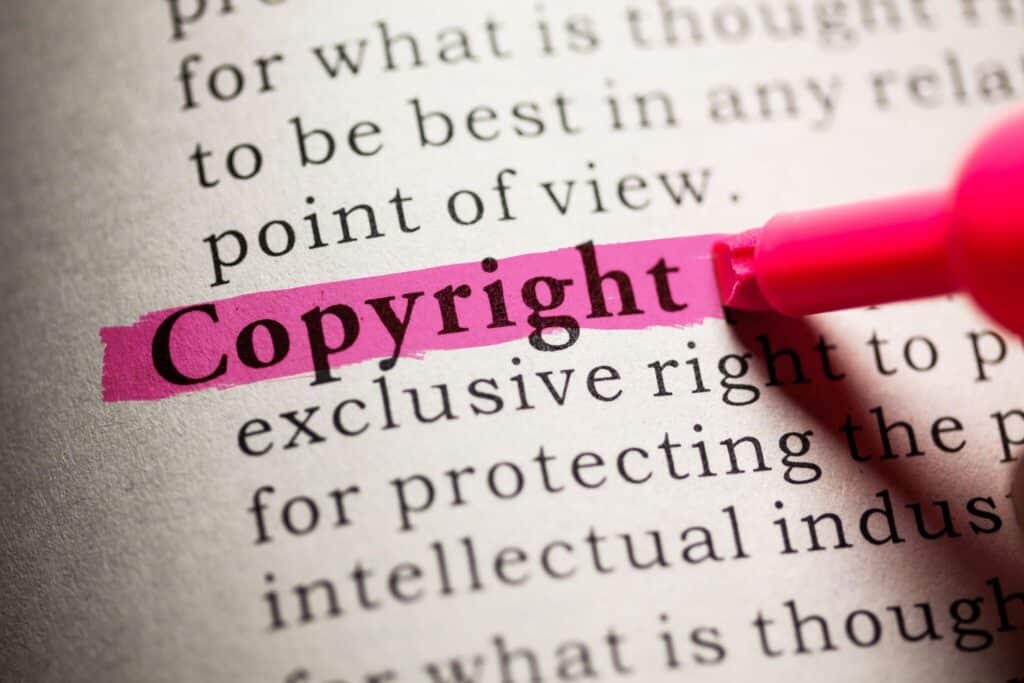How to Identify the Culprit Who Wrote Slander or Defamation on 2channel (2ch.sc)

“2channel”, which was established in 1999 as a personal website by Mr. Hiroyuki Nishimura (known as “Hiroyuki”), is now operated by “PACKET MONSTER INC, PTE.LTD” (a Singaporean corporation) as “2channel (2ch.sc)” and “Loki Technology, Inc.” (a Philippine corporation) as “5channel (5ch.net)”.
Despite splitting into two, its influence has not diminished and it remains the largest anonymous bulletin board. It is not uncommon to see posts containing insults and defamation against individuals and companies, leading to defamation and privacy violations. If you are victimized, it is necessary to respond promptly, identify the perpetrator in severe cases, and prevent them from posting repeatedly.
In this article, we will explain how to identify the perpetrator who posted insults and defamation on 2ch.sc.
Preliminary Consideration on the Prospect of Approval for Sender Information Disclosure Requests

In order to identify the poster, it is necessary to request the disclosure of sender information based on the Japanese Provider Liability Limitation Act. However, there are prerequisites for making a sender information disclosure request to 2ch.sc, and preliminary consideration is necessary.
Posts on 2ch.sc
2ch.sc is a mirror site (copy site) of 5ch.net, so the content of the posts is basically the same as 5ch.net, but separate posts are also possible. If the ID display of the post is “.net”, it is a post to 5ch.net.
When making a sender information disclosure request, it is necessary to distinguish which site the post is on and decide which site to request. It is meaningless to ask 2ch.sc to delete posts or disclose sender information for posts with an ID display of “.net”.
In order to identify the poster, it is necessary to obtain the IP address and timestamp. However, 2ch.sc only has the IP address and timestamp of posts to 2ch.sc and does not share information. This is also the case with 5ch.net. First, confirm which site the post is on, and if it is a post to 2ch.sc, it is possible to request sender information disclosure from 2ch.sc.
https://monolith.law/reputation/difference-between-2ch-and-5ch[ja]
Illegal Posts
The same applies when requesting the deletion of a post, but in order to request the disclosure of sender information, it is necessary to assert and prove that the post is illegal. You cannot request information disclosure for reasons such as “it is unpleasant” or “I want to know what kind of person would make such a post”.
Generally, if a victim suffers defamation or slander due to illegal posts on the Internet, the victim can claim damages against the offender based on tort law.
However, posts on bulletin boards are usually made anonymously. It is normal not to know who the offender is in the real world. And if the offender cannot be identified, the victim of defamation or slander cannot claim damages against the offender.
In order to pursue this liability for damages based on tort law, it is allowed to request the disclosure of sender information to identify the defendant. Therefore, whether or not the post in question is illegal is an important point.
For example, in the case of defamation, it is assumed that “the victim’s social evaluation has decreased” as an objective fact. Freedom of expression (Article 21 of the Constitution) is also guaranteed for speech on the Internet, so freedom of expression may take precedence over the illegality of the post in question, and the post in question may not be considered illegal.
Also, if the expression in question remains an expression of the expresser’s opinion, it is not defamation if there is a reasonable basis for believing that the important part of the fact that forms the basis of the opinion is true, in addition to public interest and public purpose. In a sender information disclosure request for defamation, the presence or absence of public interest, public purpose, and truthfulness may be disputed.
Whether defamation is established, whether it constitutes an invasion of privacy, whether credit defamation can be questioned, etc., it is difficult to determine whether it is an “illegal post”, so there may be times when it is necessary to rely on the judgment of an experienced lawyer instead of making a judgment by yourself.
https://monolith.law/reputation/defamation[ja]
The post is not too old
Once you have obtained the IP address and timestamp, you will sue the transit provider next. Mobile carriers like Softbank and fixed-line providers like Nifty obtain the user’s name and address at the time of contract, and also record a “log” of “which user was assigned a certain IP address at a certain time on a certain day”.
Therefore, if you sue the transit provider and win, you can force them to disclose the name and address of the person who made the post. However, there is a time limit here. This log becomes a huge amount, so the transit provider has decided to delete it after a certain period of time, which is about three months for mobile carriers and about one year for fixed-line providers.
For example, if you receive a request for a provisional disposition for a post one month ago, prepare the documents in two weeks, apply for a provisional disposition to 2ch.sc, it takes two weeks to rebut, and one week later, the IP address and timestamp are disclosed from 2ch.sc, there is almost no time left.
If the post is too old, the log will be deleted, so there is a possibility that you will not be able to identify the offender in time.
Step 1: Request for IP Address Disclosure to 2ch.sc

The first step in identifying the poster is to request the disclosure of the IP address and timestamp from 2ch.sc. An IP address is a unique ‘address on the Internet’ that a device connected to the Internet has, and a timestamp is a record of the time when an article was posted on a website.
2ch.sc is an anonymous bulletin board. Therefore, the operators of 2ch.sc do not know the address or name of the person who made a certain post. Even if you demand ‘disclose the address and name of the poster’, it would be ‘cannot disclose because we do not have the information’. However, 2ch.sc records the IP address and timestamp of the person who made the post. Therefore, we request a sender information disclosure from 2ch.sc.
First, it is usual to submit a ‘Sender Information Disclosure Request’ to 2ch.sc, but in reality, even if you send a sender information disclosure request, the information necessary to identify the poster, such as the IP address, is hardly disclosed from 2ch.sc. This is because 2ch.sc also has a duty to protect the secrets of the poster. In most cases, 2ch.sc responds, ‘We cannot disclose without a court order’.
Therefore, in parallel with sending the ‘Sender Information Disclosure Request’, it is necessary to prepare to file a lawsuit called ‘provisional disposition’ to request the disclosure of the poster’s IP address and timestamp from 2ch.sc.
The ‘Sender Information Disclosure Provisional Disposition Order Application’ is a procedure to obtain a decision (called a ‘provisional disposition’) from the court to order 2ch.sc to comply with the disclosure if 2ch.sc does not disclose the IP address and timestamp even after sending the ‘Sender Information Disclosure Request’ to 2ch.sc.
The operation of 2ch.sc is a Singapore corporation called PACKET MONSTER INC, PTE.LTD, but the provisional disposition procedure can be carried out at the Tokyo District Court, so if things go smoothly, you can get a provisional disposition from the court in ‘about one month’ and receive the disclosure of the IP address and timestamp from 2ch.sc.
If a provisional disposition is issued, 2ch.sc will promptly disclose the IP address and timestamp.
Please note that in the case of ‘court proceedings against a foreign corporation’, translation of documents and evidence may be required, and registration of the foreign corporation may be necessary, which may require additional expenses.
Step 2: Identifying the Transit Provider
Once the IP address is disclosed in Step 1, you can identify the transit provider used by the sender by looking at the URL or using provider identification services such as “WHOIS”.
2ch.sc blocks connections that are known for their high level of anonymity and frequent “trolling”, such as overseas proxy servers and public wireless LANs.
Furthermore, in the case of companies, many prohibit access to 2ch.sc from within the company as it is considered unrelated to work. Therefore, it can be said that 2ch.sc has fewer posts from highly anonymous or company lines, and more posts from home or personal mobile phone lines.
Step 3: Filing a Request to Prohibit Log Deletion

The transit provider holds a log of the subscriber’s name and address who used the said IP address at a certain time and date. Therefore, the next step would be to request the transit provider to disclose the name and address. However, as mentioned above, the transit provider does not retain logs indefinitely. Therefore, it becomes necessary to use a new court procedure to issue an order to the transit provider to prohibit the deletion of the said log.
This procedure is called a “Request for Provisional Disposition Order to Prohibit Deletion of Sender Information” (発信者情報消去禁止仮処分命令申立). This procedure must be carried out in the court that has jurisdiction over the location of the transit provider’s headquarters. In many cases, this will be the Tokyo District Court. If all goes well, within about two weeks, you can obtain an order from the court prohibiting the transit provider from deleting the records necessary to identify the poster.
However, in reality, many transit providers will preserve the logs if they are notified that “we are about to request the disclosure of the name and address through the court, so please keep the logs without deleting them for a while”. Therefore, in many cases, this part can be covered by notification alone. However, even at this time, it is necessary to argue and prove how the targeted post is illegal.
Step 4: Request for Disclosure of Name and Address to the Intermediate Provider
If the intermediate provider has preserved the logs, the next step is to request the disclosure of the poster’s name and address from the intermediate provider. This part is not a swift provisional disposition, but a formal court procedure.
Of course, the name and address are significant personal information. For example, even if someone posts on 2ch.sc calling a certain company a “black company,” if there is sufficient evidence for the post, it may not be illegal, and the personal information of the poster should be protected. With this issue in mind, the court only allows the disclosure of the name and address through a formal procedure if it recognizes the post as illegal.
This procedure also needs to be carried out in the court that has jurisdiction over the location of the intermediate provider’s headquarters. However, since most intermediate providers are headquartered in Tokyo, it is often the Tokyo District Court. This can be inconvenient for those living in regional areas.
If the court determines that “rights have been violated by the posted article” and there is a “justifiable reason” such as the need to exercise the right to claim damages in civil law, a judgment will be issued ordering the intermediate provider to disclose the name and address of the contract holder used when posting the article. Based on this judgment, by receiving the disclosure of the name and address, it is possible to identify the poster.
https://monolith.law/reputation/disclosure-of-the-senders-information[ja]
Summary

There are many cases where, even if a post that defames or slanders someone is deleted, the same content is repeatedly posted on other sites or bulletin boards. In such cases, simply deleting individual posts will not be sufficient to repair the damage to the victim.
By identifying the perpetrator and imposing appropriate penalties, it is possible to effectively prevent the recurrence of such incidents and eliminate unnecessary costs that may arise as a result.
We recommend consulting with a specialist lawyer at an early stage.
Category: Internet





















